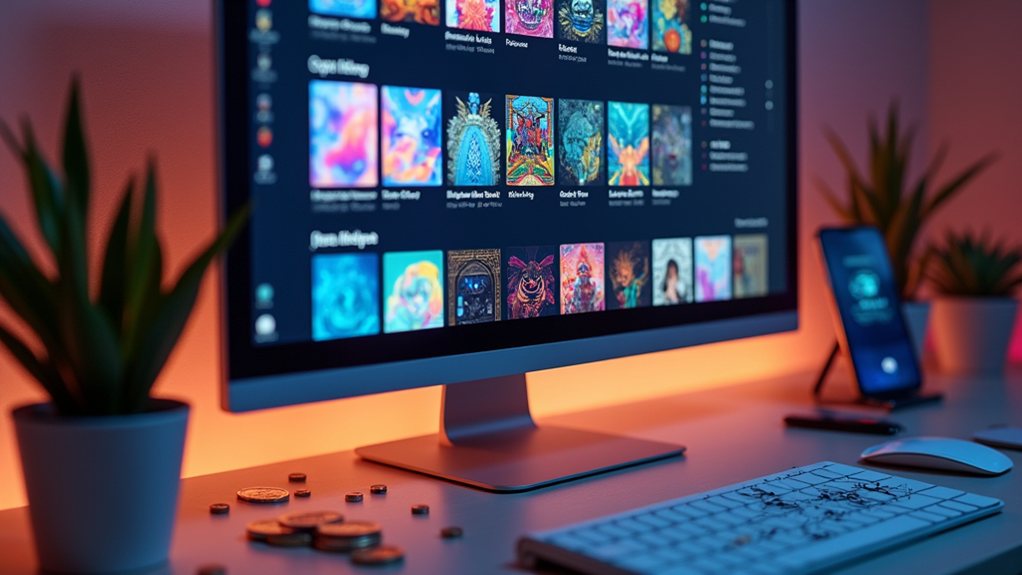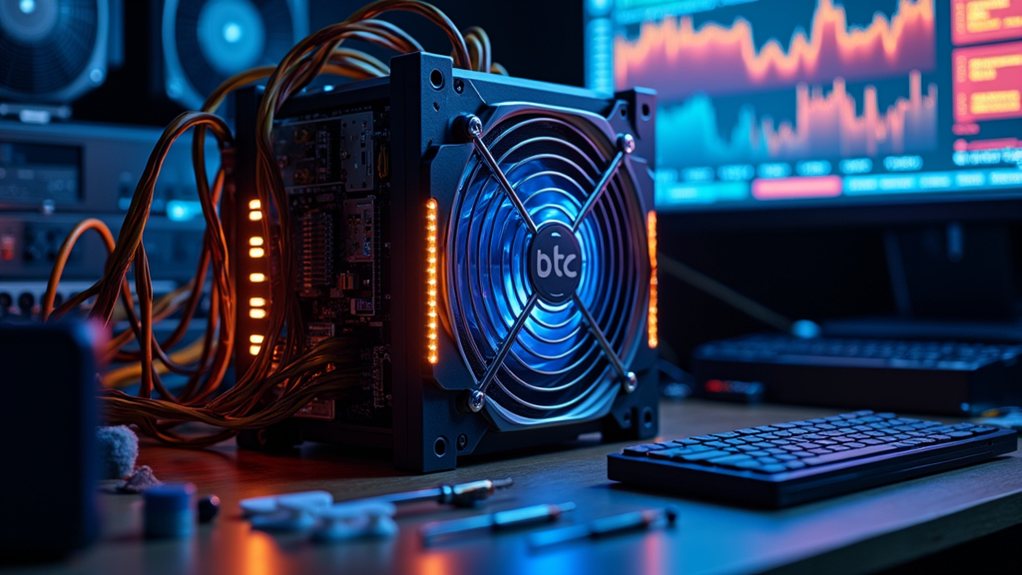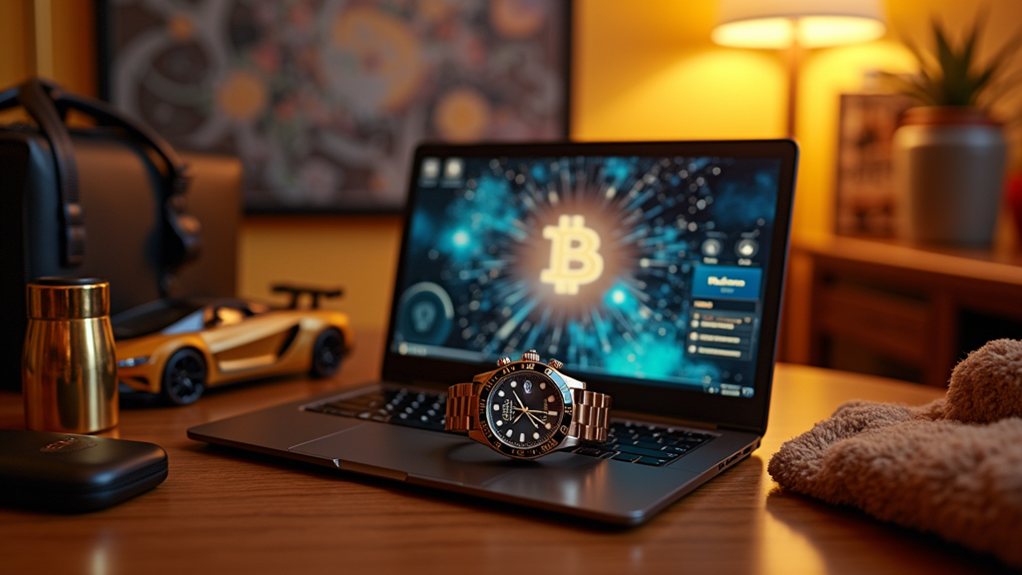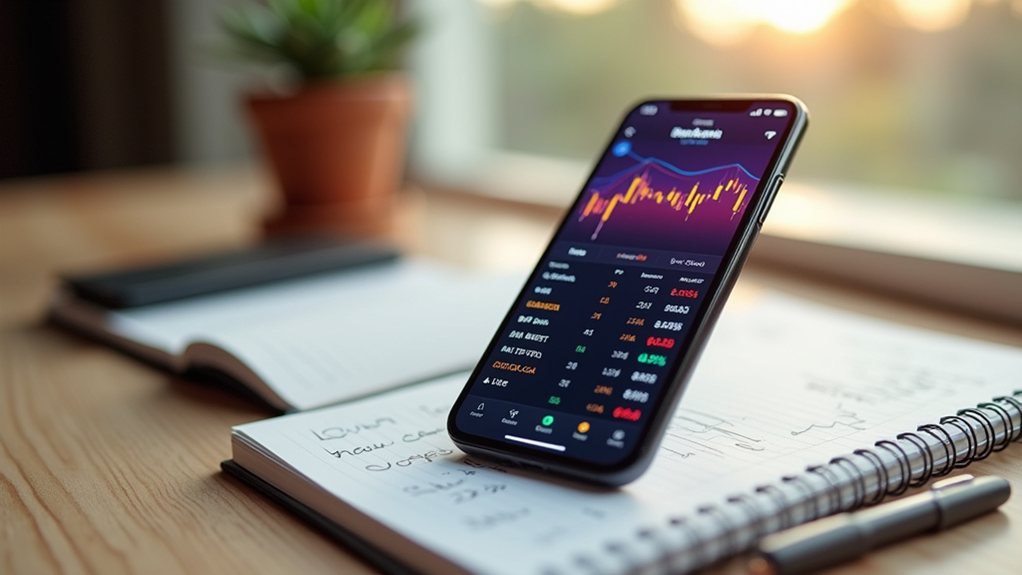Bitcoin isn't controlled by anyone. Instead, it's governed by an intricate system of code, consensus, and incentives. The Bitcoin Protocol serves as its constitution, while updates happen through community-proposed improvements. Miners and nodes enforce the rules, motivated by economic rewards. Decision-making? Painfully slow. That's the point. This decentralized governance—messy yet effective—prevents any single entity from taking over. The beauty lies in its chaotic order.
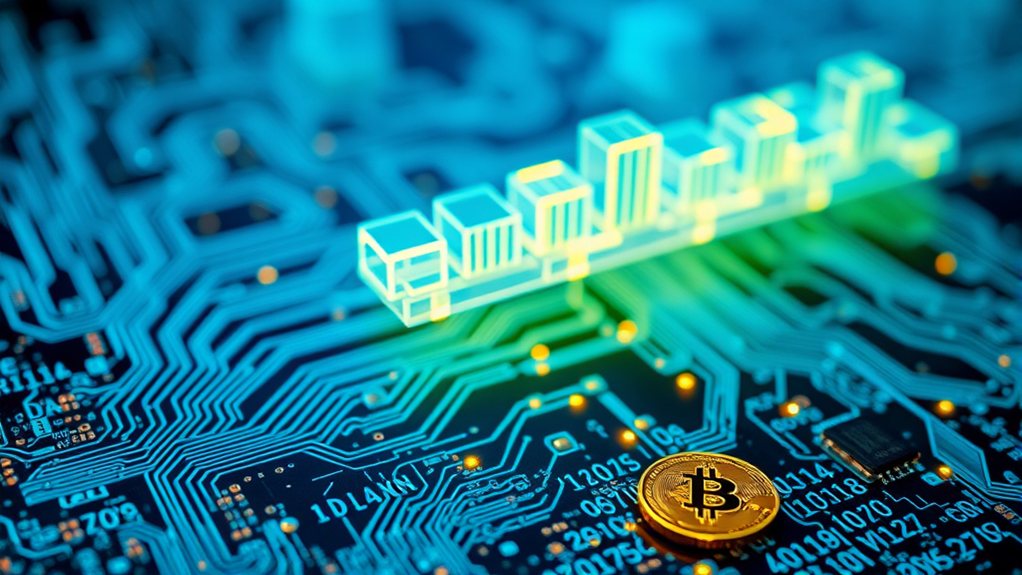
Chaos theory suggests that even the most complex systems have underlying order. Bitcoin proves this. The cryptocurrency looks anarchic at first glance – no headquarters, no CEO, no customer service line to call when things go wrong. But make no mistake – Bitcoin has governance. Just not the kind we're used to.
In the seeming disorder of Bitcoin's decentralized system lies a beautiful, self-regulating order—governance reimagined through code and consensus.
The Bitcoin Protocol sits at the heart of it all. It's a rulebook encoded in software that nobody can cheat. Want to create fake bitcoins? Good luck with that. The protocol defines how transactions get validated, how blocks form, and who gets rewards. It's ruthlessly consistent. And it's open-source, meaning anyone can inspect the code.
Updates happen through Bitcoin Improvement Proposals (BIPs). Think of them as constitutional amendments for the Bitcoin world. They're debated, tested, and implemented by developers who maintain the Bitcoin Core software. People like Wladimir van der Laan and Pieter Wuille. Smart folks. Really smart.
The network runs on nodes – computers validating transactions and storing the entire blockchain. There are tens of thousands of them worldwide. Each one enforces the rules independently. Try breaking protocol, and nodes will reject your nonsense instantly. No appeals process. No exceptions.
Miners provide the muscle. They process transactions into blocks by solving cryptographic puzzles that require massive computational power. It's not charity work. Miners get rewards – newly created bitcoins plus transaction fees. Economics in action. The difficulty adjusts every 2016 blocks to maintain a steady block time, regardless of how much mining power joins or leaves the network.
The consensus mechanism – Proof-of-Work – is genius. Miners compete to solve puzzles, and the winner gets to add the next block. The network always follows the longest valid chain. This makes attacks prohibitively expensive. You'd need to control 51% of all mining power to mess with the system. Good luck affording that.
Community governance fills in the gaps. Discussions happen on forums, social media, and at conferences. User-activated soft forks have proven that users themselves can force protocol changes by collectively adopting new rules. Mining pools represent collective hash power. Businesses influence adoption. Academics contribute research. This distributed authority structure enhances Bitcoin's resistance to censorship and improves its overall resilience.
Economic incentives keep everyone honest. The supply is capped at 21 million bitcoins. Scarcity matters. Block rewards halve approximately every four years, ensuring a predictable issuance schedule. This halving mechanism creates increasing scarcity over time, contributing to Bitcoin's deflationary nature unlike traditional fiat currencies. Bitcoin utilizes an off-chain governance system where disagreements sometimes lead to blockchain forks if consensus cannot be reached.
Bitcoin's governance isn't perfect. It's messy, distributed, and sometimes frustratingly slow. But that's the point. No single entity can control it. The system governs itself through code, consensus, and economic incentives. It's beautiful, in a chaotic kind of way.
Frequently Asked Questions
Can Bitcoin Be Shut Down by Governments?
Governments can't completely shut down Bitcoin. Period.
With 10,000+ nodes worldwide, the network's too decentralized. They'd need to kill the entire internet.
China tried banning it—didn't work. Some countries are embracing it instead.
Sure, governments can make life difficult for users through regulations, but Bitcoin's designed to resist censorship.
The more they squeeze, the more people seem to want it. Funny how that works.
How Does Bitcoin Handle Technical Upgrades?
Bitcoin upgrades through a consensus-based process. Technical improvements start as Bitcoin Improvement Proposals (BIPs), which developers debate extensively. Changes require widespread agreement.
Most upgrades happen via soft forks—backward-compatible changes that don't break existing rules. Hard forks are rare and contentious. Miners signal support by including version bits in blocks they mine.
Nobody can force changes. This deliberate, slow process frustrates some developers. But that's the point—Bitcoin wasn't built for speed.
What Prevents One Group From Taking Over Bitcoin?
Bitcoin's design actively prevents takeovers. Its decentralized network spreads power across thousands of nodes worldwide.
No central point to attack. Simple.
Economic reality helps too—51% attacks? Prohibitively expensive and probably unprofitable.
Why spend billions to destroy something you'd profit more from supporting?
Finally, social consensus matters. Users, exchanges, and miners must agree on changes.
Remember SegWit2x? Community rejected it flat-out.
Bitcoin's greatest defense? Its intentional resistance to control.
Who Fixes Bugs in the Bitcoin Network?
Bitcoin Core developers fix bugs in Bitcoin's network. These volunteer programmers identify issues, propose solutions, and implement fixes through a rigorous peer review process.
Anyone can contribute, but changes require approval from multiple core maintainers. Critical vulnerabilities get reported through the bug bounty program on HackerOne, with rewards up to $50,000.
Node operators and miners must ultimately adopt these fixes by updating their software. The process is deliberately slow and cautious.
Can the 21 Million Bitcoin Supply Limit Ever Change?
Technically, yes.
Actually, unlikely. Bitcoin's 21M cap could change via hard fork, but it'd require massive consensus among miners, nodes, and developers.
The community fiercely opposes this idea—it's Bitcoin's core value proposition. Previous attempts at smaller changes failed spectacularly.
BlackRock mentioned the possibility in legal documents, but let's be real. Changing the cap would destroy trust and crash Bitcoin's value.
Not happening.


